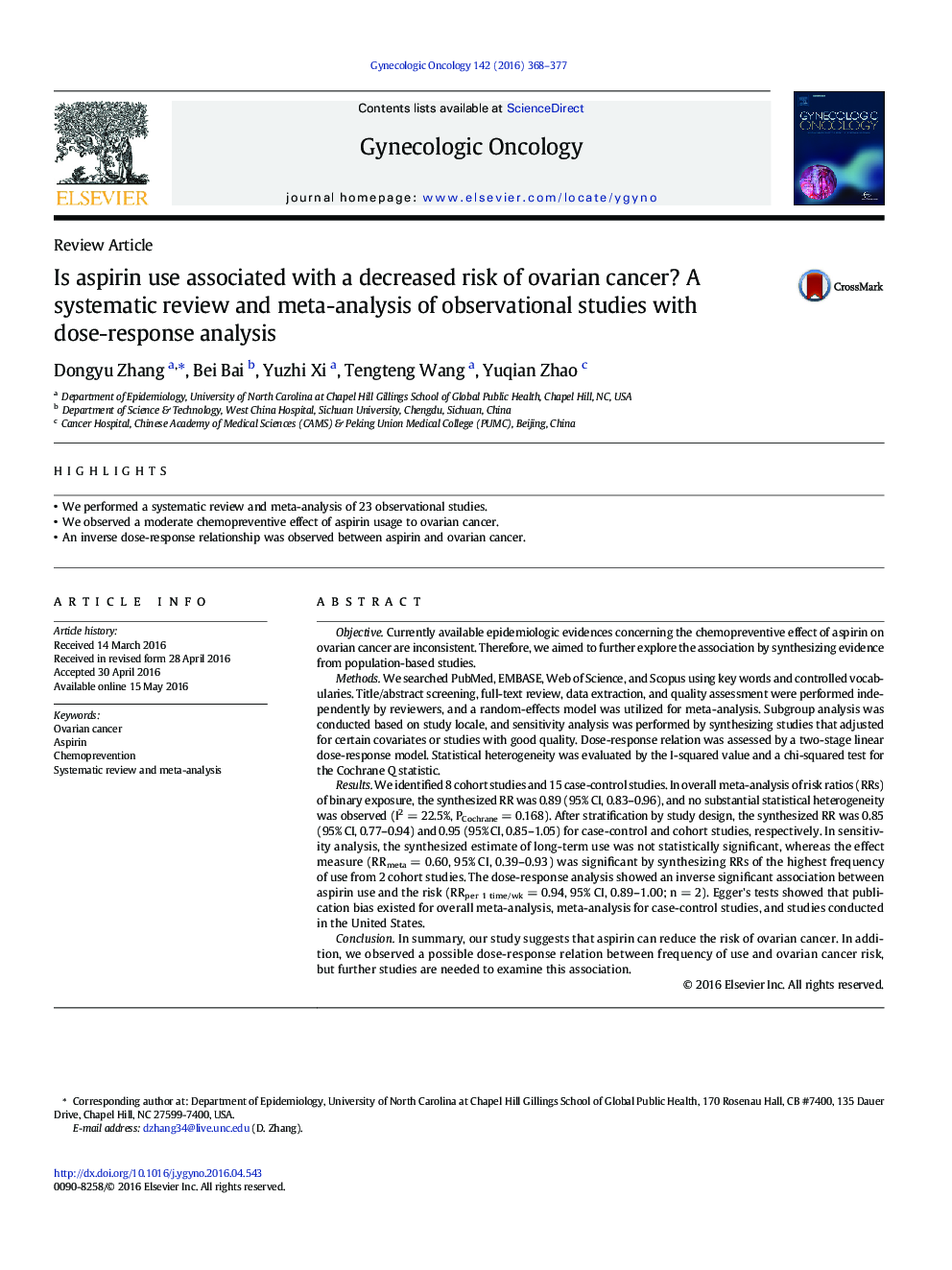| کد مقاله | کد نشریه | سال انتشار | مقاله انگلیسی | نسخه تمام متن |
|---|---|---|---|---|
| 3946368 | 1254336 | 2016 | 10 صفحه PDF | دانلود رایگان |
• We performed a systematic review and meta-analysis of 23 observational studies.
• We observed a moderate chemopreventive effect of aspirin usage to ovarian cancer.
• An inverse dose-response relationship was observed between aspirin and ovarian cancer.
ObjectiveCurrently available epidemiologic evidences concerning the chemopreventive effect of aspirin on ovarian cancer are inconsistent. Therefore, we aimed to further explore the association by synthesizing evidence from population-based studies.MethodsWe searched PubMed, EMBASE, Web of Science, and Scopus using key words and controlled vocabularies. Title/abstract screening, full-text review, data extraction, and quality assessment were performed independently by reviewers, and a random-effects model was utilized for meta-analysis. Subgroup analysis was conducted based on study locale, and sensitivity analysis was performed by synthesizing studies that adjusted for certain covariates or studies with good quality. Dose-response relation was assessed by a two-stage linear dose-response model. Statistical heterogeneity was evaluated by the I-squared value and a chi-squared test for the Cochrane Q statistic.ResultsWe identified 8 cohort studies and 15 case-control studies. In overall meta-analysis of risk ratios (RRs) of binary exposure, the synthesized RR was 0.89 (95% CI, 0.83–0.96), and no substantial statistical heterogeneity was observed (I2 = 22.5%, PCochrane = 0.168). After stratification by study design, the synthesized RR was 0.85 (95% CI, 0.77–0.94) and 0.95 (95% CI, 0.85–1.05) for case-control and cohort studies, respectively. In sensitivity analysis, the synthesized estimate of long-term use was not statistically significant, whereas the effect measure (RRmeta = 0.60, 95% CI, 0.39–0.93) was significant by synthesizing RRs of the highest frequency of use from 2 cohort studies. The dose-response analysis showed an inverse significant association between aspirin use and the risk (RRper 1 time/wk = 0.94, 95% CI, 0.89–1.00; n = 2). Egger's tests showed that publication bias existed for overall meta-analysis, meta-analysis for case-control studies, and studies conducted in the United States.ConclusionIn summary, our study suggests that aspirin can reduce the risk of ovarian cancer. In addition, we observed a possible dose-response relation between frequency of use and ovarian cancer risk, but further studies are needed to examine this association.
Journal: Gynecologic Oncology - Volume 142, Issue 2, August 2016, Pages 368–377
